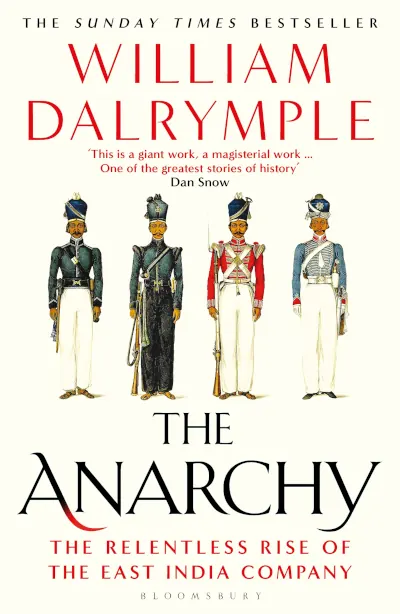
This is a marvellous and depressing book. Marvellous because it finely details the history, atrocities, and geopolitical strife of unfettered capitalism. Depressing for much the same reason.
Dalrymple takes the thousand different strands of the story and weaves them into a (mostly) comprehensible narrative. With this many moving parts, it is easy to get confused between the various people, places, companies, and loyalties. Your eReader’s dictionary will have a good workout as you try to decipher the various calques and loanwords.
It is more nuanced than I expected. Rather than just an unending parade of awfulness, it d…

This is a marvellous and depressing book. Marvellous because it finely details the history, atrocities, and geopolitical strife of unfettered capitalism. Depressing for much the same reason.
Dalrymple takes the thousand different strands of the story and weaves them into a (mostly) comprehensible narrative. With this many moving parts, it is easy to get confused between the various people, places, companies, and loyalties. Your eReader’s dictionary will have a good workout as you try to decipher the various calques and loanwords.
It is more nuanced than I expected. Rather than just an unending parade of awfulness, it does dive in to the various attempts to reign in the terror and promote peaceful trade. These nearly always failed. Similarly, there were individual acts of kindness and honour which, nevertheless, cannot begin to make up for the exploitation.
The one question it doesn’t (and possibly can’t) answer is “what would India have been like without the EIC?” Obviously the company was hugely disruptive and extracted vast amounts of wealth - but the history of every continent shows internecine warfare whenever a ruler dies. A constant theme of the book is “Almost immediately, the court disintegrated into rival factions” The bloody battles between the various states, despots, kings, and tyrants would have eventually occurred. The French - and other colonisers - would have also rampaged through the nation. This isn’t to excuse the EIC, and almost everything they did was inexcusable, but rather to say they probably weren’t uniquely awful in the atrocities they committed.
We see the rapacious nature of megacorporations today. While few have a standing army, they are all dedicated to usurping authority and plundering resources. The Anarchy describes how the Company whispered in the ears of leaders, promised them the world, and then cruelly turned on them. Again, a depressing reflection of our own times.
Notable by their absence are women. There are an endless assortment of unnamed dancing girls and courtesans, but the only named women are the (mostly British) wives in the background and Begum Samru. There’s also only a brief mention of the other geopolitical impacts the EIC had. For example, I had no idea that the tea from the eponymous Boston Tea Party was supplied by the EIC.
I don’t understand why publishers pretend eBooks have the same limitations as their paper counterparts. The paper book puts all the illustrations at the end - presumably to save money. But this book would have benefited from interspersing the portraits with the text. Similarly, a map or two wouldn’t have gone amiss to help the reader visualise the tangled path the various armies took.
The books is disturbing and upsetting, but a vital read for anyone who wants to understand a key point in the world’s history. If only we could learn from it, eh?